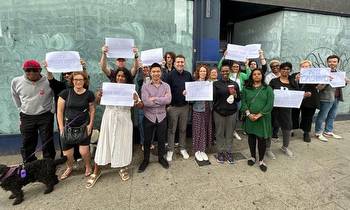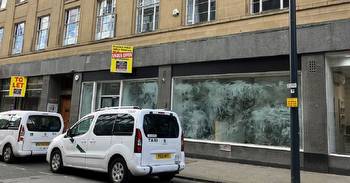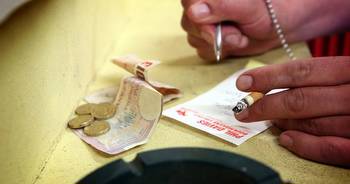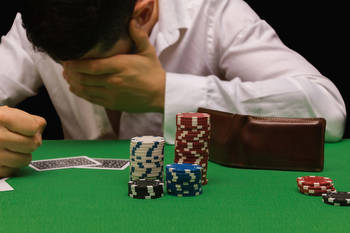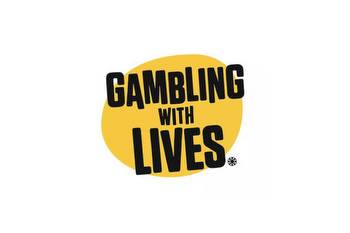Hidden harms of gambling put under spotlight by Hertfordshire councillors

'Hidden' online gambling and players being ‘bombarded’ with advertising – on TV, in apps and around sport – have been highlighted during a day-long county council scrutiny of ‘gambling harms’.
Buying a lottery ticket, going to the bookies or placing a bet online may be enjoyable.
But when gambling becomes a problem it can impact on finances, family and friends – in some cases resulting in the loss of a car, a home or even a life.
And on Tuesday, January 11, a panel of councillors met to look at the prevalence and practice of gambling in the county – as well as the support available when it becomes a problem.
Members of the county council’s gambling harms topic group heard that more than half of the county’s population (54 per cent) are likely to have gambled recently – reducing to 40 per cent if the National Lottery is not included in the data.
And while the odd flutter may be fun for the vast majority, up to 0.5 per cent of Hertfordshire residents – that’s around 4,720 people – are believed to be ‘problem gamblers’.
In addition estimates suggest a further 3.8 per cent – that’s 35,876 Hertfordshire residents – could be classed as ‘at-risk gamblers’.
The advent of online gambling means the numbers of people gambling may be less obvious than in the past, when there were more likely to be queues of people in betting shops.
And with the proliferation of smartphones, councillors heard that now everyone can have ‘a casino in their pockets’.
Among those to highlight the move to online gambling at the topic group was deputy county council leader Cllr Morris Bright, who is also executive member for public health and community safety.
He said that people were now ‘bombarded’ with advertisements for online gambling – highlighting adverts associated with peak time tv shows such as I’m a Celebrity Get Me Out of Here.
And he pointed to voting ‘apps’ that had gambling adverts included – as well as apps for football scores.
“The problem is it is going virtual,” he said.
“It is going online – and that causes a hidden problem with personal bet gambling.”
During the session Cllr Bright advocated a public health approach to ‘gambling harm’ – understanding impacts, preventing harm and intervening early.
And he advocated support for mental health, debt, alcohol and other issues, as part of enabling them to be as healthy and as independent as possible.
But he stressed that he was ‘not against gambling’.
“As a county we do want people to be able to gamble safely, and without harm – and to get help when they need it,” he said.
“The harm costs a great deal to society – both financially and in terms of emotion and physical stress and healthcare as well.”
During the day, the panel of councillors heard from a number of organisations that offer some level of support.
Anna Hemmings, from GamCare, pointed to the charity’s 24-hour helpline – as well as support and treatment, education and outreach.
In outlining the Recovery for All project, Roni Adjei pointed to stigma and cultural sensitivities that could prevent some from stepping forward to get help.
And former teacher Steve Watts told the panel how he had founded GamFam after experiencing first-hand the effects that gambling can have.
Mr Watts said that as a parent he had been aware of dangers associated with alcohol, tobacco and drugs.
But he said he had no idea that gambling could be so harmful to families.
Now GamFam works to support others – and he advocates that ongoing work should include those with lived experience.
Adding perspective to the issue, he suggested that it was just five per cent of people providing 60 per cent of profits for gambling operators – which, he suggested increased to 80 per cent if online gambling was included.
Prof Henrietta Bowden-Jones, director of the national centre for behavioural addictions, told the panel there was a need for better data and research to inform policy in this area.
And she said funding – that was independent of the industry – was required to fund treatment.
The panel also heard from Herts Partnership University Foundation Trust (HPFT) deputy medical director Dr Rakesh Magon, Det Supt Douglas Black from Hertfordshire Constabulary and Melanie Bel Haj from Citizens Advice.
And Eartha Heptinstall, from GamCare, outlined a gambling harm and criminal justice programme that had been conducted in Hertfordshire between 2018 and 2020, funded by the Police and Crime Commissioner.
In response to the evidence the panel will come up with a number of recommendations that are expected to focus on the need to raise awareness, the disproportionate gambling distress amongst BAME groups and data.
Ultimately it is expected that the work will lead to an agreed multi-agency approach to address gambling harm in Hertfordshire, with measurable milestones.
Following the topic group, chair Cllr Chris White said that – in contrast to the harms of tobacco and alcohol – gambling harm was ‘a bit of an unrecognisable issue’ for many.
And he said he hoped the work of the topic group would achieve greater public understanding, more effective and more efficient working between agencies and ultimately a reduction in harm.
He pointed to a sense of ‘normalisation’ around gambling – particularly that it was normal behaviour amongst young males.
And he said: “Our role is to challenge that normalisation and make it clear that help is available.”
While he said there was a lot of good agency working, he stressed that there could be ‘a great deal more – pointing to the importance of ‘screening’, recognising that a problem which presents itself to the police, GP or other agency may have a gambling issue behind it.











